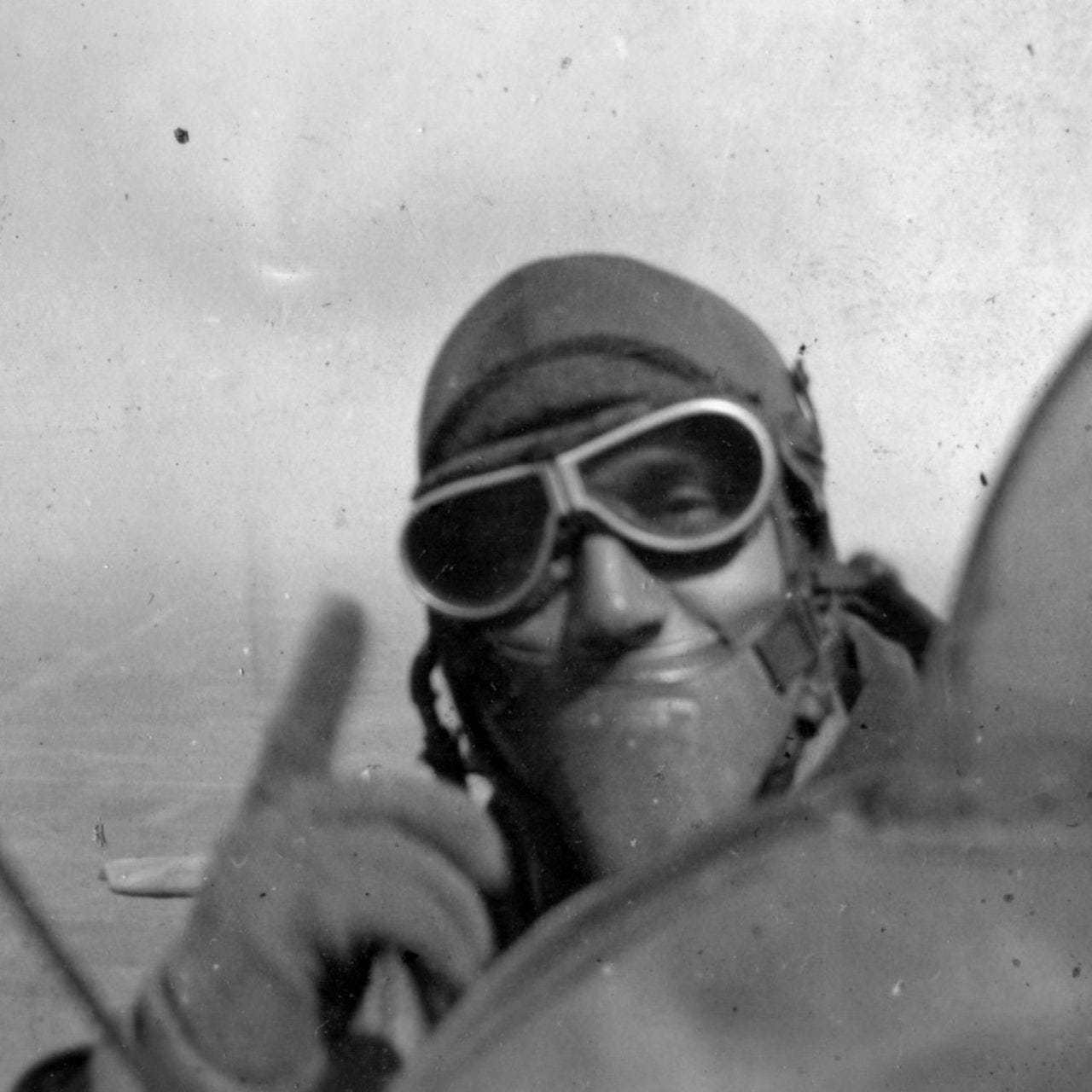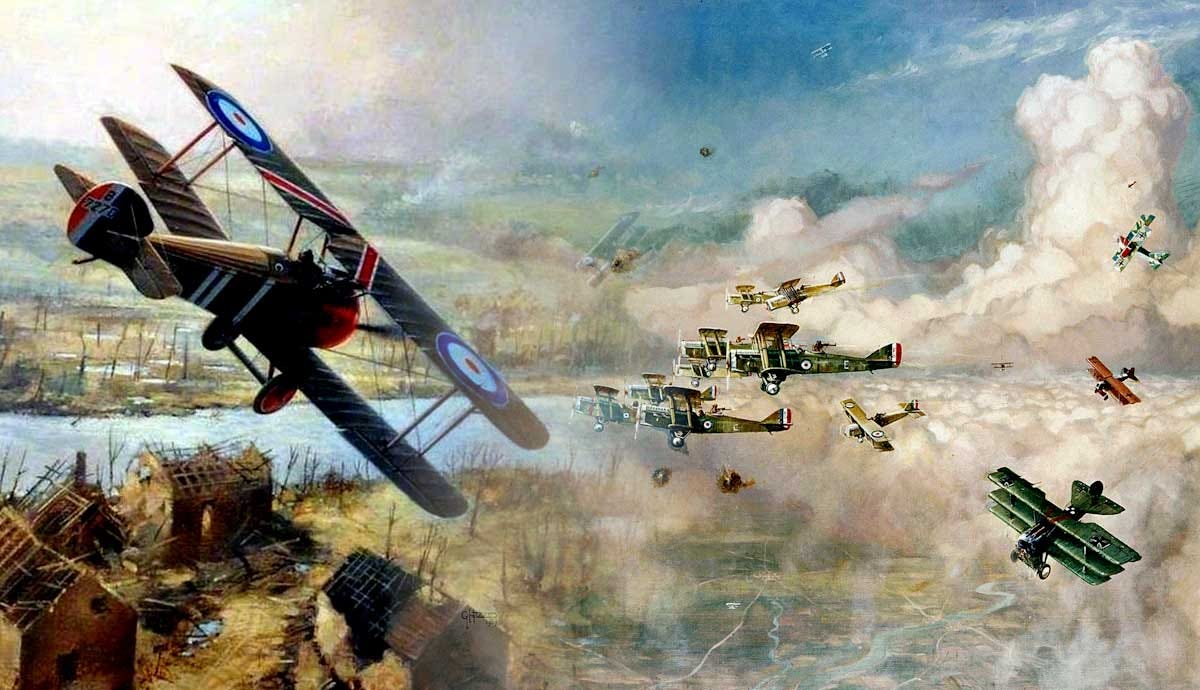Hello everyone! From my perch on the northern end of the westernmost chunk of a burning nation I find myself writing about shit that happened more than a century ago, an ocean away.
From my earliest years I have been fascinated by the first world war, especially the role played by an 18-year-old Phoenix upstart named Frank Luke. Frank was by all accounts an unlikeable blowhard with few friends, but he did have an early companion named Bill Elder.
I worked up the outline for a novel about Luke as seen through the eyes of Bill, Brother Icarus. In preparing for this book I did a great deal of research about what aerial combat was like in 1917, digging though dozens of fist-hand accounts that were major bestsellers in the 1920s.
As always, I try to put the reader squarely in the middle of the situation at all times. This book is fully outlined, but only the first twenty thousand words are written. No idea if and when I will ever get back to it, so I thought I’d publish this little piece.
I hope you enjoy it.
June 28, 1917
The sky.
Before he came to England he'd never considered it. The sky was always just there, dome of the heavens, infinite and remote. Clouds, rain, sunrise and sunset, stars and meteors and the moon. The backdrop of his entire life, wholly unnoticed.
Now the sky is his whole world. He lives by its invisible currents and eddies that toss his fragile craft like a paper boat in a maelstrom. To the four compass points he now must add others, the perilous depth and infinite height, a visceral dimension governed by its own laws.
And that's without counting the enemy.
Bill tugs back on the stick between his legs, the rotary motor a blur of cylinders and propeller that blows a mist of burnt castor oil into his face, riming his goggles and filling his lungs with an odor now familiar as coffee or freshly mown hay. He pushes his flapping scarf up over his nose, swipes at his goggles with a gloved hand.
As he claws into the sky the air is markedly colder, the wind screaming across his face. The others of the squadron seem to float around him like flies, eleven planes made of doped linen stretched over hardwood frames, wings held taut with wires and turnbuckles.
His face feels like a block of river ice, but beneath his fur-lined oilskin flying suit his guts writhe and burble. Castor oil's high burning temperature and low viscosity keep the Le Rhône motor well-lubricated, but the powerful laxative probes his bowels like a claw. All Camel aviators are affected by chronic diarrhea, many shitting themselves midair. Bill has become accustomed to it, but for some reason today his stomach is roiling.
He cranes his head to see Captain Collett waving a gloved hand above his cockpit. Bill nudges the stick to the left and his Camel swoops a graceful arc. Flying alongside now, Collett points a straight arm to two o'clock, then chops it twice. Bill waves back, then pulls on the stick to climb until the altimeter reads twenty thousand.
This is the new tactic from this morning's briefing––a flight of two patrols at maximum altitude while the observation planes fly low and slow to take their photographs for artillery command. When the Germans attack the slow aircraft, the high flight can dive out of the sun and rip them to pieces.
The strategy is supposed to protect the observers, but the only thing that matters to every aviator his own success, personal notches on his belt for enemy shot down. Every pilot longs to become an ace with five confirmed kills. In the newspapers, the tallies are followed as closely as the National League pennant race. Heroes were made of Manfred von Richthofen, Albert Ball, and Georges Guynemer. The fact that none of these men lived long enough to enjoy their fame is part of the mystique. Early death is an abstraction, something that happens to others.
Bill is all but convinced it will never happen to him.
Of all the aviators in squadron 84, only Collett has scored a kill, this despite being equipped with the newest plane of the war, the Sopwith 2F.1. Though not a large man, Bill is crammed tight in the cockpit. A canvas seat, a small wooden dashboard with gauges for airspeed and altitude, a rudimentary inclinometer like a bubble level, a mostly useless magnetic compass. Most important is the glass ampule that indicates the amount of fuel remaining in the tank. Pilots and mechanics call it the Camel because of the distinctive hump made by an aluminum hood shielding the twin Vickers guns in front of the pilot. The plane weighs just twelve hundred pounds and does not so much fly as skid across the sky, the enormous torque of its rotary motor pulling it along strange and unexpected axes like a cantering horse that fights its saddle. It was designed to be unstable, the weight of motor, pilot, guns, and fuel tank packed into the front third of the aircraft. At low altitude it is impossible to keep it level without pushing hard on the stick. Camels are prone to vicious spins and sudden stalls, but in skilled hands a superb fighting machine, powerful and lithe. "More pilots will die learning to fly this bus than by Hun bullets," Collett told them. "Take your attention off her for a second, she'll get out from under you and down you'll go."
Bill scrapes the frost off the height gauge with his gloved thumb. Twenty thousand. From this altitude the front lines look like an old woman whose skin is ravaged by disease, pocked and pitted and scarred. Bill swivels his head looking for telltale wing glints that approaching enemy planes. It has taken him weeks to learn how to spot them, and even now he is usually among the last to notice.
He nudges the stick to the right, adding a little rudder. The Camel wheels, its port wing dipping. He pulls back and levels her out. Far below, the observation craft make their stolid way over the lines while the rest of the squadron protectively circles above like vultures.
Bill sees the glints now, a dozen German Albatros DVIIs streaking out of the sun about five thousand feet below him. Stomach tight, he reaches for the wooden paddles of the guns and charges each in turn. He pushes the stick and drops into a screaming dive. Three German planes float past. Bill presses the bar and fires a burst through the synchronized propeller, airframe juddering with the recoil.
The rearmost Albatros peels off and somehow is suddenly behind him. Bill hears the thump of bullets piercing the fabric wing and pushes the stick hard over to the right, the Camel spinning like an ice skater as he turns inside the German's arc. The Albatros is right in front now, less than sixty feet away. Bill pushes the paddles and the twin Vickers roar. Before the flight he'd carefully hand-loaded the ammunition belts, inspecting each cartridge before pushing it in, three regular rounds followed by one red phosphorus tracer. Now he sees the skittering line of red as the tracers lash the back of the German like a whip.
The pilot's head snaps forward and Bill's goggles are spattered with blood. He frantically wipes it away and watches the headless German flopping in the cockpit as the plane corkscrews down and away.
Bill's cowling and windscreen are streaked with gore, gouts of red rolling back as he pulls the stick to regain altitude. He turns his head left and right and left, mouth dry and frantic heart thumping. The sky is empty except for plumes of smoke rising from the ruined landscape below.
He, Bill Elder, just killed a man in single combat. He feels no triumph, only the residual ache of panic. He stomach heaves and he realizes that again he's shit himself.
He grins now, thinking maybe he'll wear diapers next time.






